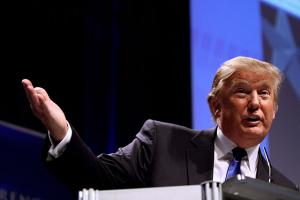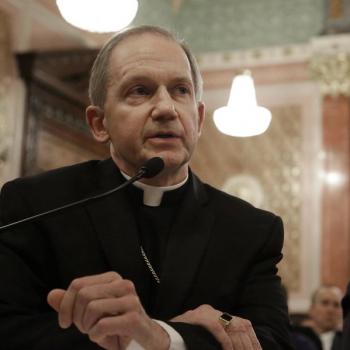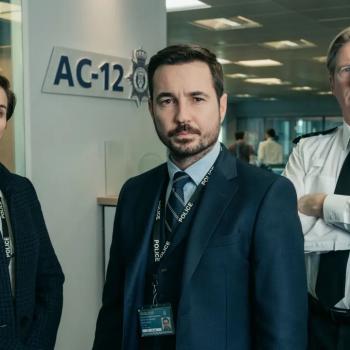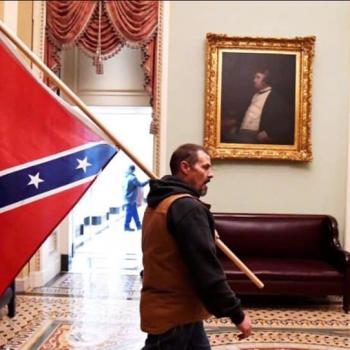
Robert Mueller’s investigation into Donald Trump’s campaign for president started as a snowball. It is quickly becoming an avalanche.
Mr. Trump, feeling the pressure, is lashing out at his political opponents more frequently, including, last week, hinting that police and the military—and some outfit called Bikers for Trump—would make things “very bad, very bad” for his political opponents; would “do things that are very nasty.”
Then Sunday morning—two days after a white nationalist who murdered fifty Muslims in New Zealand named the President as an inspiration—Mr. Trump took to Twitter. He demanded that Fox News restore Jeanine Pirro, who they suspended after anti-Islamic remarks she made a week ago.
All this got me to thinking of past presidential corruption, and the press’s exposure of it.
All the President’s Men, released in 1976, about the Watergate break-in and subsequent coverup, was the first R-rated movie I ever saw. My brother and I were ten and my parents believed it was important that we be aware of current events. The following fall, I got my hands on a copy of the book by Bob Woodward and Carl Bernstein. Imagine my thrill when I saw a famous burst of profanity from the movie—Woodward’s “Holy sh#t, the CIA”—in print for the first time.
The other big presidential scandal in the early 1970s was what became known as the Pentagon Papers, a trove of classified reports about how not just President Nixon, but every president going back to Harry Truman, lied about our role and chances for success in the Vietnam War.
The New York Times broke that story in 1971 and the Washington Post followed up.
Because the two newspapers were exposing classified documents, it all wound up in the U.S. Supreme Court, as is told in the 2017 film The Post. In a landmark decision, the High Court sided with the newspapers—and with the Constitution of the United States.
Two scandals, two movies
What’s fun is to watch All the President’s Men and The Post back-to-back and compare Tom Hanks’ version of Ben Bradlee with Jason Robards’. Mr. Robards’ portrayal of a cranky, irascible Ben Bradlee is great, of course (“G#ddammit when is someone going to go on the record on this story?!”). But based on everything about or by Mr. Bradlee I’ve read, I think Hanks’ portrayal is closer to the man.
Both movies do an excellent job of capturing what is called the Washington cocktail circuit—the chummy relationship between high-ranking press figures and high-ranking government figures. The bosses in the press were hobnobbing with high-ranking government officials, even while the bosses’ reporters were writing about those same government officials.
But The Post is scathing in its indictment of how this cozy relationship undermined coverage of an executive branch that had lied about the Vietnam War for five presidential administrations.
Mr. Bradlee tells Ms. Graham (Meryl Streep) in one scene:
It’s just the way things worked. The politicians and the press, they trusted each other so they could go to the same dinner party, drink cocktails and tell jokes, while there was a war raging in Vietnam…. The way they lied—those days have to be over.
The Post also captures the different corporate cultures of the Post vs. the New York Times.
The Times gets hold of a small portion of explosive, classified government documents and sticks its star reporter, Neil Sheehan, in a hotel room for months to sift through them and write a story.
The Washington Post gets almost the full cache of those same documents. Mr. Bradlee gathers his top reporters in his house and working together, they crank out a story in one day.
A federal judge says, “No more writing about this,” and the Times knuckles under. The Post says, “The only way to assert the right to publish is to publish,” and forges ahead.
The Times is stuffy; the Post is scrappy. And, one gets the sense that if it had been left to only the Times to cover Watergate, we might never have learned anything, and Nixon would have been president until 1977.
A light in darkness
Mr. Nixon was corrupt, but he was a schoolboy compared to Mr. Trump—and Trump’s family, and his administration, and his campaign, and his inaugural committee, and his personal lawyer, and his personal doctor, and his country clubs…
Mr. Nixon hated the press, but nothing like Mr. Trump, who conducts an almost daily campaign of vitriol and threats against the media—and encourages his base to do so as well.
The Post’s slogan, “Democracy dies in darkness,” first appeared on its masthead in 2017, shortly after Mr. Trump was sworn in. The Post is right. It is the job of the Post—and of the Times, and of all media—to shine a light into the places that the powerful want to keep dark. And into the places that, just now, Mr. Trump wants to keep dark.
We’re relying on the Times and the Post and all good journalists. We have to. Because something else has changed since the Pentagon Papers and Watergate scandals. Back then, the Supreme Court sided with the press because it respected and understood the Constitution. Now—thanks to Mr. Trump—that same Supreme Court may not be quite so reliable.












